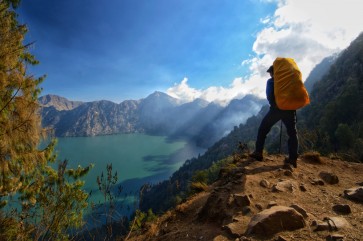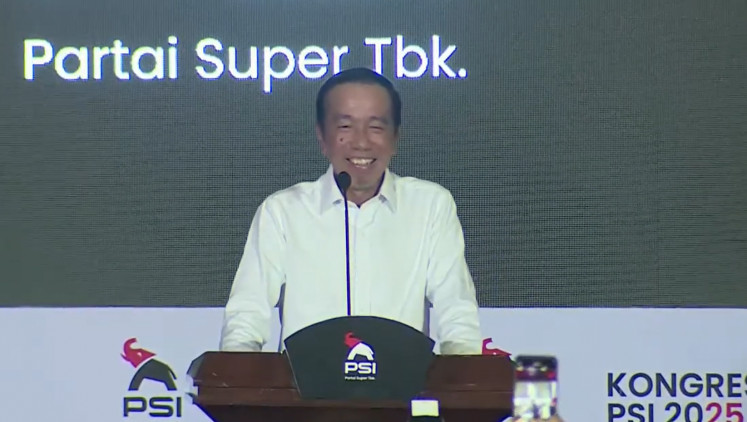Popular Reads
Top Results
Can't find what you're looking for?
View all search resultsPopular Reads
Top Results
Can't find what you're looking for?
View all search resultsGovt plans to renegotiate all contracts including Freeport
The Energy and Mineral Resources Ministry has confirmed plans to renegotiate all mining contracts including those with mining giants like Freeport and Newmont, as mandated by the 2009 law on minerals and coal
Change text size
Gift Premium Articles
to Anyone
T
he Energy and Mineral Resources Ministry has confirmed plans to renegotiate all mining contracts including those with mining giants like Freeport and Newmont, as mandated by the 2009 law on minerals and coal.
According to the ministry’s director for minerals and coal, Thamrin Sihite, around 65 percent of mining companies operating in Indonesia had agreed to the government’s request to renegotiate their contracts.
“The renegotiation is the mandate of the law. The law is made by the people and the voice of the people is God’s voice. We are proceeding with the renegotiation plan,” he explained in a telephone interview.
PT Newmont Nusa Tenggara (NNT) president director Martiono Hadianto revealed earlier that his company had no problem with the government’s plan, saying that it had been in talks with the government to discuss the matter. NNT is the operator of Batu Hijau gold and copper mine in West Nusa Tenggara.
Regarding PT Freeport Indonesia, the operator of Grasberg mine in Timika, Papua, the ministry claimed it had requested the company to submit all necessary documents for the renegotiation. However, Thamrin declined to say whether the company had agreed to the plan or not.
According to the ministry, there are 42 mining companies holding mining contracts with the government and 76 companies holding coal contracts of works (locally known
as PKP2B).
During the interview, Thamrin also emphasized the government’s position on questions regarding its plan to ban raw-material exports starting in 2014. He said there was no reason for the government to cancel the plan.
“All clauses in the 2009 law on minerals and coal were final and all raw materials have to be processed in the country,” he said firmly.
“This regulation is good for Indonesia. If we can process the raw materials in the country, why should we send them to Japan? Our Industry minister has also discussed incentives and disincentives to support the implementation of the regulations”.
Earlier, Indonesian Industry minister MS Hidayat said that the Japanese Economy, Trade and Industry minister, Yukio Edano, asked whether the implementation of the ban on raw material exports would be implemented fully starting 2014.
“He [the Japanese minister] asked me whether Indonesia could still export raw materials if there was surplus stock after all smelters in Indonesia had operated to full capacity. I didn’t answer, I said I would discuss it with the related ministry first,” he said.
Hidayat continued that he had requested the Japanese minister to boost investments in Indonesia particularly in the downstream sector. The Indonesian government would guarantee raw-material supply for Japanese smelters built in Indonesia, he added.
The Energy and Mineral Resources Ministry said earlier that this year the ministry hoped to attract US$3.5 billion in new investments into the mineral and coal mining sectors, a 10 percent increase from the $3.18 billion reached last year.
The chairman of the Indonesian Mining Experts Association (Perhapi), Irwandi Arif, agreed with Thamrin that the government had to be consistent with the regulations it had issued because developing downstream industries in the mining sector was very important for the country’s future.
“We have to be consistent with our purpose of developing added value. This is the new paradigm in the 2009 law on minerals and coal. This is very important to increase the contribution of mining products to the state and people,” he argued.










